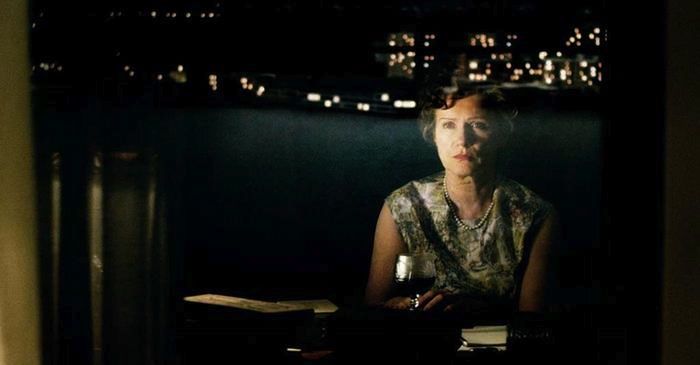
 George Orwell once wrote that "every book is a failure." I think that probably every film is, too. But that doesn't mean director Margarethe von Trotta hasn't accomplished something remarkable with "Hannah Arendt," a vibrant biopic of the controversial, German-American philosopher. Any distillation of Hannah Arendt, a writer responsible for such colossal books as "The Origins of Totalitarianism," is bound to be a failure. Yet Von Trotta's film is supple enough in its interpretation of that life to balance intimacy and distance. She creates an unexpected love story between us and Arendt's needling definitions of what it means to be human.
George Orwell once wrote that "every book is a failure." I think that probably every film is, too. But that doesn't mean director Margarethe von Trotta hasn't accomplished something remarkable with "Hannah Arendt," a vibrant biopic of the controversial, German-American philosopher. Any distillation of Hannah Arendt, a writer responsible for such colossal books as "The Origins of Totalitarianism," is bound to be a failure. Yet Von Trotta's film is supple enough in its interpretation of that life to balance intimacy and distance. She creates an unexpected love story between us and Arendt's needling definitions of what it means to be human.
It doesn't hurt that superb German actress Barbara Sukowa grounds the film with a nimble performance. She makes playing Arendt look easy as we follow the twentieth century icon from Manhattan, where Arendt escaped to from France in 1941, to the formidable 1960 trial of Adolf Eichmann in Jerusalem. There, Arendt is surprised to see how insignificant Eichmann, a Nazi war criminal, appears. "He's like a ghost that happens to have a cold" she says of the man who organized the mass deportation of European Jewry to death camps during the Holocaust. As Arendt smokes and watches the trial from a conference room, the camera pans in on her face. Behind Sukowa's sturdy stare, we sense the burgeoning of Arendt's monumental theory.
That theory became known as the "banality of evil" and it didn't sit well with many, many people. In 1963, "The New Yorker" published a series of articles by Arendt that detailed her analysis of Eichmann and his trial. In the end, Arendt argued that the mind boggling discrepancy between the enormity of Eichmann's crimes and his unsettlingly ordinary disposition suggested that evil is carried out not by monsters, but everyday people who fail to think about their actions. In response, her detractors accused Arendt not only of defending Eichmann, but blaming the Holocaust on the Jews themselves.
Unfortunately, in countering these outlandish claims, "Hannah Arendt" doesn't give much sense of its famous subject as a writer. It was in Arendt's writing that many critics feel her sarcasm and judgmental remarks made her appear arrogant and unfeeling. But the film does convince of Arendt as someone significantly less barbed in the flesh. Her brilliant relationships with husband Heinrich Blücher (Axel Milberg) and author Mary McCarthy (Janet McTeer in a withy performance) in particular paint Arendt as crisp with intelligence and lighthearted affection. That's a great combination for giving your awareness of ugly realities, especially those of traumatic pasts, room to breathe without shame. You see the context, then, the space in which Arendt developed her beliefs. It's a hungry, vigorous, and passionate space and in the film's rallying moment, in which Arendt defends herself in front of a lecture hall, it syncs with your own mind, try as you might to resist.
"Hannah Arendt" is book ended by two shots of New York City and of Arendt laying on a couch with her eyes closed. Just as we know that the tranquil view of the Manhattan skyline betrays the frequently chaotic verve within, we know that something is going inside of Arendt's mind. That awareness is the film's accomplishment. Arendt, who died in 1975, had and has a reputation for being an overwhelmingly multivalent and heady writer, which means you might not have a particular urge to crack open one of her books. However, the intellectual glow Von Trotta and Sukowa channel in "Hannah Arendt" makes you think that doing so might not be such a bad idea.